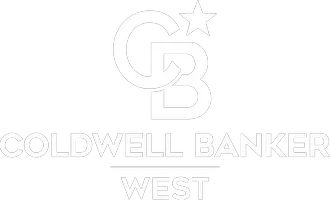Does overvaluation of homes make homeownership a risky move?
National home prices have risen nearly 50 percent since the end of 2019 and several analyses say homes are substantially overvalued.
Overvaluation is a predictor of stagnant, even negative, real returns in coming years, a headwind to anyone counting on real estate as a source of wealth, wrote Greg Ip, chief economics commentator for The Wall Street Journal.
Financial models from the Federal Reserve and John Burns Research have homes overvalued from 25 percent to nearly 40 percent.
A home may be more valuable, in one sense, if someone now works from home. Also, San Diego County built only 1,255 single-family homes in 2023, making it a scarce asset.
Q: Does overvaluation of homes make homeownership a risky move?
Economists
James Hamilton, UC San Diego
YES: House prices have gone up faster than inflation over the past five years, and interest rates are much higher. Both factors mean substantially bigger monthly mortgage payments. Many people are assuming that house prices will continue to go up and mortgage rates will come down, allowing them to refinance with a capital gain. But either of those assumptions could prove wrong. You shouldn’t take on monthly payments that you can’t sustain.
David Ely, San Diego State University
NO: In many regions, the supply of homes falls short of demand so any downward adjustment in prices will be modest. Conditions that led to the 2007-2010 slump in home prices do not exist now. Then, relaxed lending standards led to high foreclosure rates and the collapse of subprime lending. In recent years, financial institutions have managed lending risks more closely. Homeowners may begin to experience more modest gains but are unlikely to experience significant losses.
Caroline Freund, UC San Diego School of Global Policy and Strategy
YES: Buying a house is risky given current prices. Nevertheless, there are reasons to buy if you are able. If you expect to be in the house for more than five years, for many folks it will be financially prudent, given rental savings and mortgage tax deductions. Buying also allows you to customize your home, without worrying about a landlord. While relatively high interest rates push up borrowing costs, you can refinance if they fall.
Kelly Cunningham, San Diego Institute for Economic Research
YES: Buying homes always has risk, especially considering the amount paid and when purchased. Higher prices make riskier prospects. Higher mortgage rates, including down payment, closing costs, and moving expenses compound risks. Real estate is also an illiquid asset requiring some time to sell if needing capital. Coastal California retains high value because of the desirable location, but market fluctuations can get out of reasonable proportion. Volatile relationships between supply and demand always remain economic considerations.
Lynn Reaser, economist
NO: There are three classes of homebuyers: short-term home flippers; investors looking to convert housing into rental properties; and homebuyers looking for a place to live in themselves. Various metrics of prices versus rents suggest that the first two investor classes may be disappointed by subpar returns. However, the core group of buyers will not see home values fall below the cost of their mortgages as in the lax lending crisis of 2007-09.
Executives
Austin Neudecker, Weave Growth
NO: Primary home ownership has proven to a stable, long-term investment. Prices could be relatively high today but if you hold for more than 10 years, you are likely to profit from a sale (meanwhile, reaping annual tax benefits). Even when the market crashed, if you had purchased near 2007, prices returned by 2016. Speculative investments over shorter periods have less reliability. Also, remember that maintaining property can be expensive and ties up capital that cannot be invested elsewhere.
Chris Van Gorder, Scripps Health
NO: I don’t think so, especially here in San Diego. Home prices are based in part on supply and demand, and we have a significant under supply of affordable housing. That won’t be fixed anytime soon. Real estate held for the long term will likely still increase in value, although not as rapidly as in recent years. There might be a risk of overvaluation in other parts of the country, but that’s less likely here.
Jamie Moraga, Franklin Revere
NO: If you have a strong financial picture and can purchase a home now regardless of interest rates or cost, then this provides an opportunity to buy or invest when demand is suppressed. Some buyers can’t play in this market right now due to their finances or the high interest rates, so they are sitting on the sidelines waiting for the situation to improve. For those who can play today, homeownership can continue to build wealth and be an asset.
Haney Hong, San Diego County Taxpayers Assoc.
NO: While overvaluation is certainly something to consider for those relying on real estate as a wealth generator, the dire state of housing production and the widening gap between supply and demand overshadow the potential for a market correction in the near future. In today’s political and economic uncertainty, owning a home is increasingly a privilege. Despite overvaluation, the stability it offers in these times make it an invaluable asset — especially for the everyday citizen.
Phil Blair, Manpower
NO: Not if you currently own a home. If you don’t then buyers need to think of their timing to buy a house just like they would a hot stock. Stocks go up when they are hot and down when not so hot. Over valued is in the eye of the beholder. If you owned or purchased in 2019 you can be pretty confident your home (stock) will maintain that value. The hard part today is when to jump into the ownership (or sell market) market versus continuing to rent and wait the bubble out. Just like a hot stock.
Gary London, London Moeder Advisors
NO: Markets are cyclical. History has shown that every successive market peak achieves higher home prices than the high point from the previous cycle. So, even if you purchase a home in an “overvalued” market, the home will recover value over time, reducing the risk. The cure to correcting high price levels is to build more homes and increase resale inventory. That is far more important than fussing over this statistical nonsense.
Bob Rauch, R.A. Rauch & Associates
YES: There is more risk now than a few years ago when prices were valued more modestly and interest rates were low. But I do not see prices dropping much, even in a recession. Underwriting has become more professional, and loans more conservative. Further, there remains a supply shortage, so prices have a low risk of steep declines, but the reward of solid value increases is modest in the short term.
Not participating this week:
Norm Miller, University of San Diego
Alan Gin, University of San Diego
Ray Major, SANDAG
Have an idea for an Econometer question? Email me at phillip.molnar@sduniontribune.com. Follow me on Threads: @phillip020
Categories
Recent Posts











